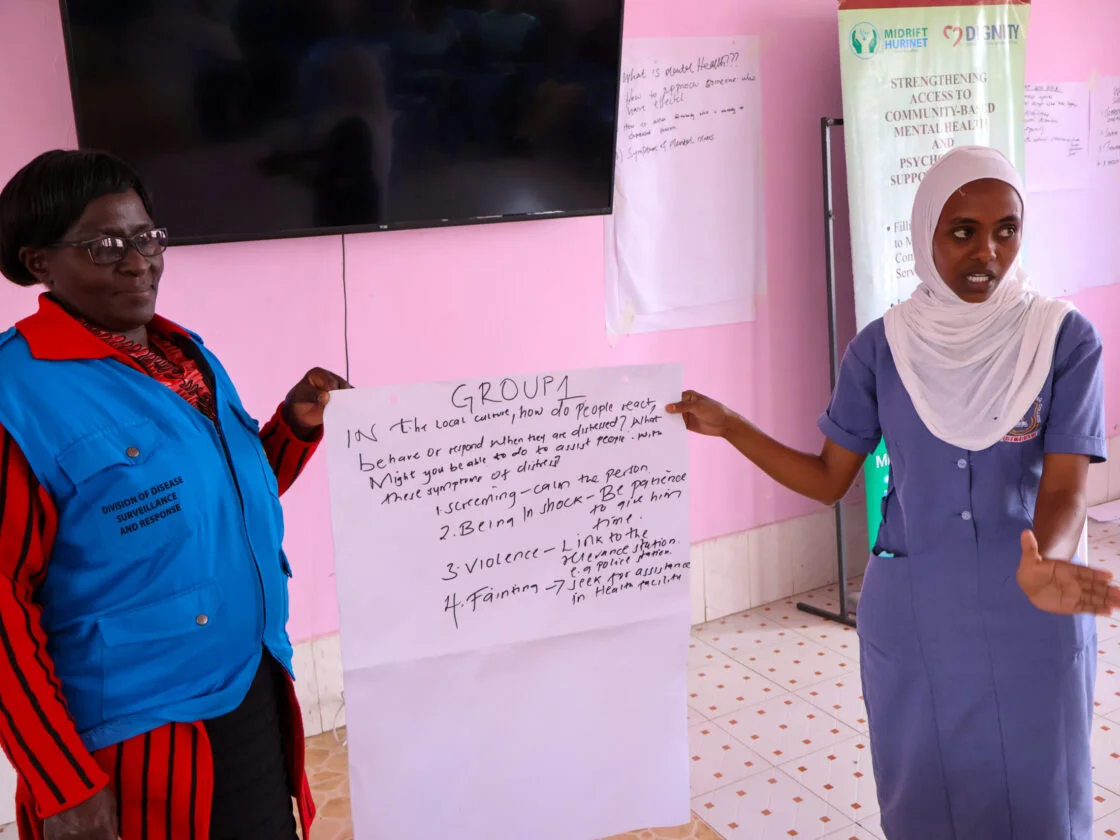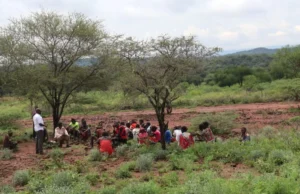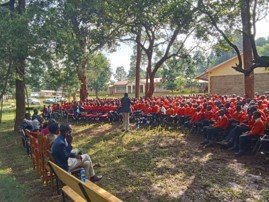In line with MIDRIFT HURINET’s programming of implementing a Community-Based Mental Health and Psychosocial Support project aimed at strengthening access to Mental Health and Psychosocial Support Services and mitigating the effects of Gender-Based Violence in Nakuru County, Community Health Promoters (CHPs) have continuously been capacity strengthened as level 1 tier in the health care System.
CHPs aid in Community access to Mental Health and Psycho-social Support Services (MHPSS) and are a key focal point in the health referral system in partnership with Nakuru County Government – Official through the Department of Health Services.
Intersectoral leaders in Nakuru Town East, Nakuru Town West, Njoro, and Naivasha Sub Counties have also built on appropriate skills to respond to community Mental Health needs and the appropriate linkages.
In 2020 during the coronavirus pandemic, MIDRIFT HURINET trained the first cohort of Community Health Promoters on Psychological First Aid (PFA) as a response to initial distress caused by the Coronavirus traumatic situations.
Psychological First Aid is a set of skills, knowledge, and practical approaches that can be used to help anyone who has gone through a crisis or traumatic event.
The initiative further complements MIDRIFT HURINET programming on increased knowledge of Mental Health & Psychosocial Support Services case referral pathways and intersectoral collaboration in referrals among state and non-state actors in Nakuru County.
In partnership with the Nakuru County Government through support from DIGNITY, MIDRIFT HURINET recently facilitated the training of 39 Community Health Promoters on Psychological First Aid (PFA) bringing the total number of trained Community Health Promoters in the County to 84.
The Community Health Promoters were taken through, among other topics; the Importance of self-care, Mental Health, and Psychosocial Support Services framework, Psychological First Aid (PFA)overview & action principles, Communication skills, Coping strategy, and Social Support.
They were also taken through case scenarios and role-plays which strengthen practical thinking and the application of knowledge in new situations while facilitating the display of strategic thinking, approach, and expertise.
Another component during the training was the breathing exercise which helps to manage stress and promotes relaxation. When a service provider controls their breathing, the client will be able to match their breathing thus calming and reducing the feeling of anxiety.
The CHPs were later taken through Ethical Guidelines to use while helping community members which included aspects of confidentiality and skills to use in
identifying and supporting survivors in distress.
Confidentiality was reemphasized as it builds trust with Community members and offers linkages for further referrals.
They went through the PFA reporting tool and were urged to be honest while submitting feedback as it was important in programming interventions within the
community.
In the training, they were enlightened on the available local referral networks they can use and their structures with special consideration to PFA action principles and personal safety.
The action principles of prepare are Look, Listen & Link, and enable them to describe the principles, recognize survivors with urgent basic needs, and know
what to say to different survivors while calming them.
During the training, one of the participants opined;
“I arrived at my home very late due to the heavy rains.
My Grade 5 son who has always pronounced that he will be a Medical Doctor enquired why I was late today and I told him I had attended a training session on PFA.
He asked me what PFA is as he grabbed the PFA manual we had been given at the training.
I informed him it’s a set of practical actions that are used for survivors in distress and the issue can range from fire incidents, road accidents, and someone ill at the hospital, and the caregiver needs someone to talk to.
At this time, he was busy flipping the pages and reading the topics therein.
He further enquired how someone can provide PFA without being emotional or biased towards the survivor.
I informed him that from the training, we were taught to be calm by maintaining eye contact, lowering my tone while speaking, and not interjecting the survivor when speaking.
We were also enlightened on the principles of PFA; I need to prepare myself by knowing about available services and support in my community and the level of safety
and security.
While at it, I must observe the PFA principles of Look, Listen, and Link, which aim to reduce more harm to the survivor.
In the three scenarios, I observe the survivors’ urgent basic needs, I contact people who may need support while helping them to be calm and help the survivors cope with the situation and connect them with their loved ones and social support which is not limited to access to services.
My son was overjoyed with this information and told me when he becomes a Medical Doctor, he will also help survivors who are in distress and support them till they
recover.
I am happy the first day of training already has an impact on my life”
This is not the first training for CHPs undertaken by MIDRIFT HURINET.
Previously the Community Health Extension Workers and PM+ helpers were trained on how to use the KOBO collect tool and how to report PM+ (Problem Management Plus) data.
The training on Problem Management Plus (PM+) was in partnership with the County Government of Nakuru through support from the Danish Institute Against Torture
(DIGNITY).
MIDRIFT HURINET and DIGNITY use Problem Management Plus (PM+) which was developed by the World Health Organization to respond to the need for Mental Health and Psychosocial Support Services in areas of adversity where there is little or no access to mental health specialists.
PM+ is a simplified focused non specialized Cognitive Behavioral Therapy approach that can be provided by trained non-specialists (lay counselors), to help people with common Mental Health problems such as depression, anxiety, and stress.
By being trauma-informed, Problem Management Plus (PM +) is an approach that targets trauma-affected populations, including survivors of Gender-based and other forms of violence.
It is a scalable community-based approach that can be adapted to fit the local context and it is part of the World Health Organization Mental Health Gap Action Programme (mhGAP) forms
There are pre and post-assessment forms and five PM+ sessions at the intervention level.
As a way of going digital and embracing technology, MIDRIFT HURINET has taken a step to digitize the forms using the KOBO collect tool and secured tablets to be used by the Supervisor to enable efficiency and protection of sensitive data.
PM+ supervisors have also familiarized themselves with the digitized forms which they agreed were ready for implementation.
MIDRIFT HURINET ongoing creation of more Communities of practice continues.
By Jacob Karani



